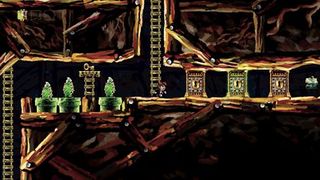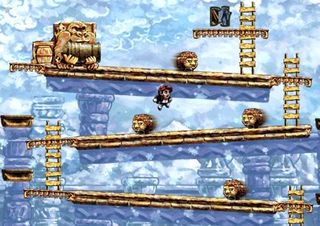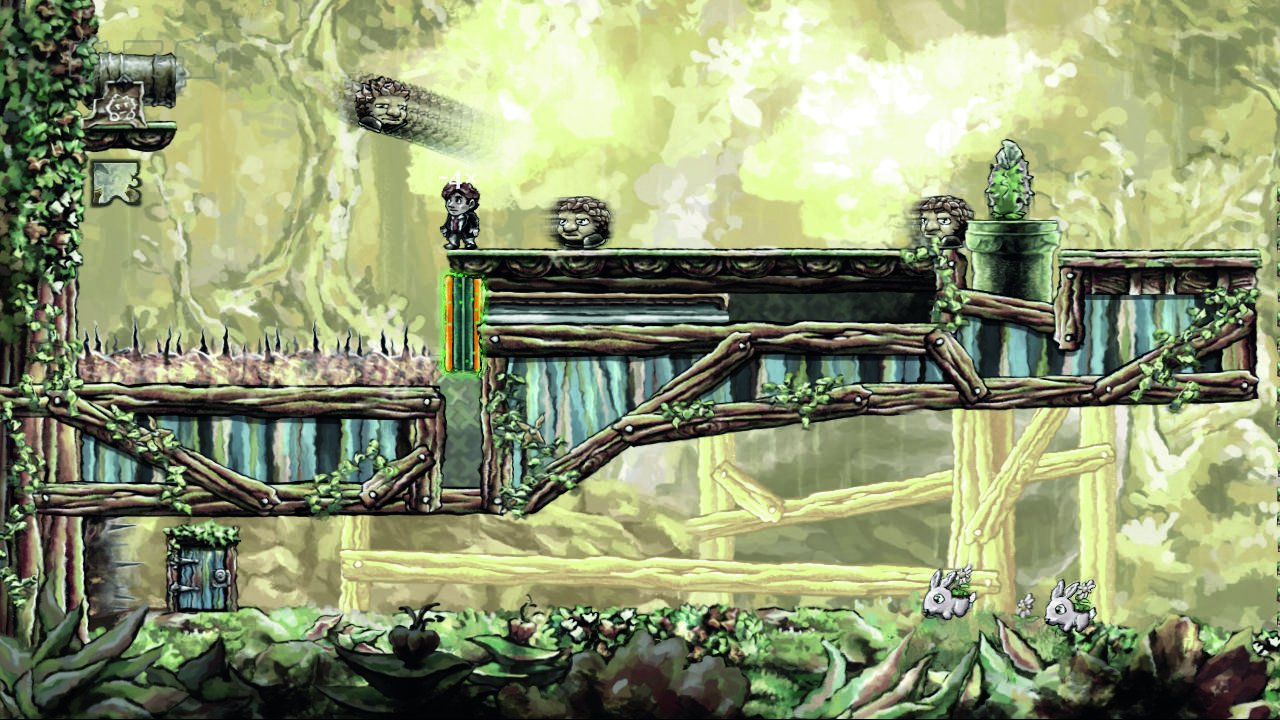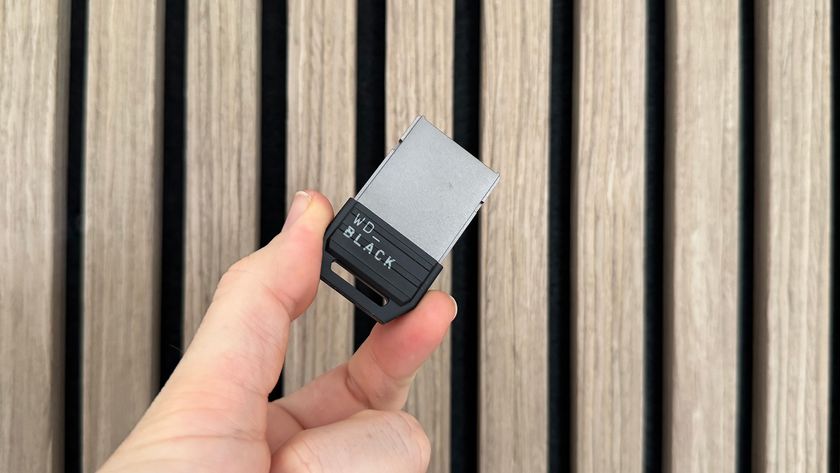GamesRadar+ Verdict
Pros
- +
Full of ingenious ideas
- +
Tons of variety
- +
Every aspect is necessary
Cons
- -
Gets pretty tough
- -
Kinda short
- -
Other XBLA games look silly
Why you can trust GamesRadar+
There’s a sense that everything in Braid matters; every element is crucial to the whole and not a single facet is wasted. Each world exists under different rules – in one, time moves forwards as you move right and backwards as you head left; in another, time can be slowed around a focal point; another spawns two universes simultaneously, allowing you to solve puzzles using your own parallel universe doppelganger as your co-op buddy.
In every world, time can be thrown into rewind. There’s nothing punitive about Braid – no death, no failure, nothing to kick you in the crotch when you’re having fun, just success and reward. Every stage so perfectly designed that failure isn’t defeat, but rather an opportunity to try again and do it better. It’s possible to head from the left to the right and reach the game’s end, barely touching a puzzle nor using your abilities, should you fancy. Braid doesn’t care how you play it, whether you see the whole story or whether you seek out every last puzzle piece to make it to the game’s final world – the game doesn’t care whether you see everything, only that you have fun with everything you see.

It’s a bit like Portal, really. Like Valve’s space-bending Game of the Year, Braid is perfect in its size, shape and focus. It’s long enough to occupy you, short enough not to outstay its welcome; easy enough that every stage can be breezed through, but tough enough that only masters will see all that the game has to offer. It’s fast enough to demand precision and meticulous execution, but slow enough to accommodate careful planning and design. Where Portal offers new ways to manipulate space, Braid’s hook is in manipulating time – different dimensions but the same pure fun. But Braid is both the polar opposite and the twin of Portal – both games presenting a unique and striking world to explore, one cold and unforgiving, the other warm and alive. Both tell a story in a unique way and both leave questions unanswered when the end comes. Braid is short on stages but long on imagination, and it packs more good bits in its few hours than most ultra budget titles manage in one hundred.

Every element is so cohesive – the story is a sophisticated and very personal tale which intertwines with the personal design obsessions of its author. Together, Jon Blow and David Hellman have created something which looks and feels as though it were poured rather than built. Braid somehow feels as though it has always existed; as if it were some memory of a game you played long ago. It’s like a classic platformer nobody ever got around to making – the mold was always there, and it just needed someone with enough ideas to fill it. That’s Braid – amazing ideas, achievement, logic, pride, beauty, and a game so good it makes every other Xbox World five-star game look a little silly. In a world without Mario and Valve and the Bethesda hit factory Braid is indeed the best game ever made; in this world, it’s among the best games of the generation, and is unquestionably and immediately the best game ever to have been released on Xbox Live Arcade.
Aug 8, 2008
More info
| Genre | Puzzle |
| Description | Braid is a puzzle-platformer, drawn in a painterly style, where the player manipulates the flow of time in strange and unusual ways. Easily one of the best games downloadable games to date. |
| Platform | "Xbox 360" |
| US censor rating | "Everyone 10+" |
| UK censor rating | "" |
| Alternative names | "Braid" |
| Release date | 1 January 1970 (US), 1 January 1970 (UK) |














